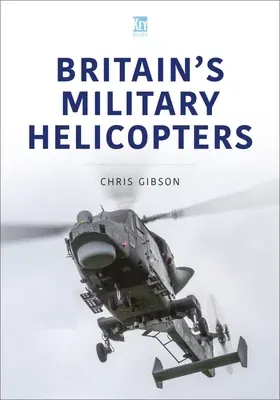A key component in any armed force, helicopters operate in a range of
roles not only previously filled by aircraft but also many that are
completely new. Thanks to their ability to go anywhere and operate from
locations as diverse as landing pads hacked out of the rainforest or the
pitching deck of a frigate, the helicopter adds a flexibility unknown to
armed forces in the past. Be it antisubmarine operations by a Merlin,
fire support from an Apache, stores delivered by a Puma, evacuation of
the wounded by a casevac Chinook or rescue by a Sea King, helicopters
offer the Royal Navy, British Army and Royal Air Force capabilities
unheard of in the history of conflict. From its beginnings as a
curiosity with little operational use, Britain's armed forces soon
embraced the helicopter with the Whirlwind for the Royal Navy and RAF
and the Skeeter for the Army Air Corps. Finding these helicopters
limited, it was the advent of the turboshaft that revolutionized the
helicopter, with the Belvedere, Wessex, Wasp and Scout bringing new
capabilities. The next generation, the Puma, Lynx, Sea King and Chinook,
all designed for turboshaft power, made the helicopter an essential
machine for all the armed forces and have proven their worth to
Britain's forces since the 1970s.
In Britain's Military Helicopters, Chris Gibson describes the
evolution of the helicopter in British service, from their beginnings
with the Sikorsky R-4B test flown by Fleet Air Arm pilots in the USA to
the latest Wildcat and Apache Guardian. Lavishly illustrated throughout,
this book includes original photographs and images from archives, many
of which are previously unpublished.

